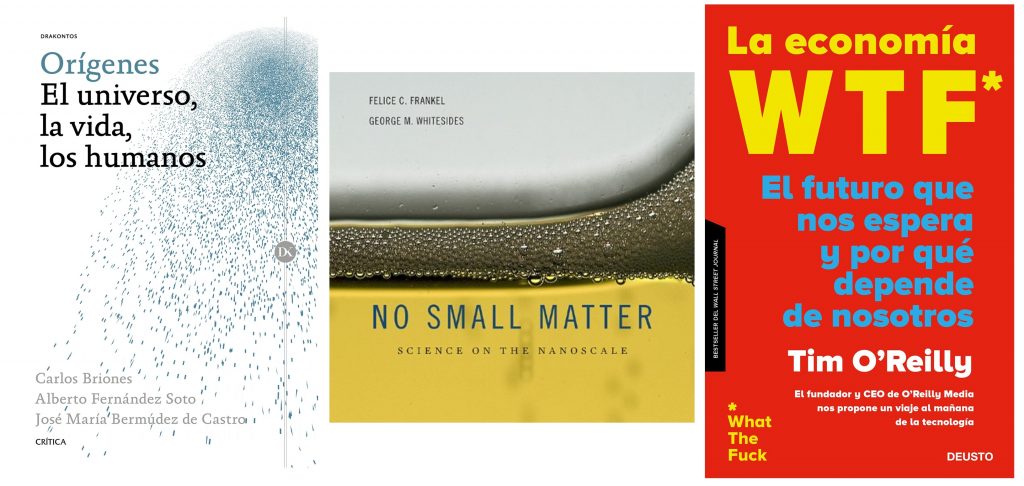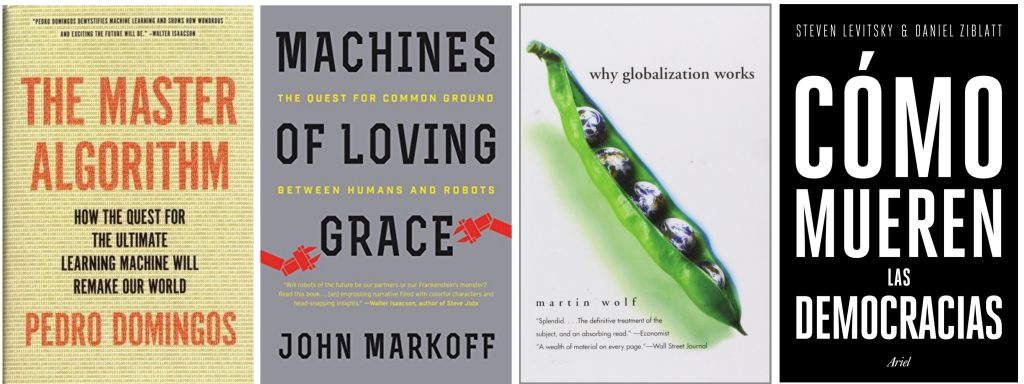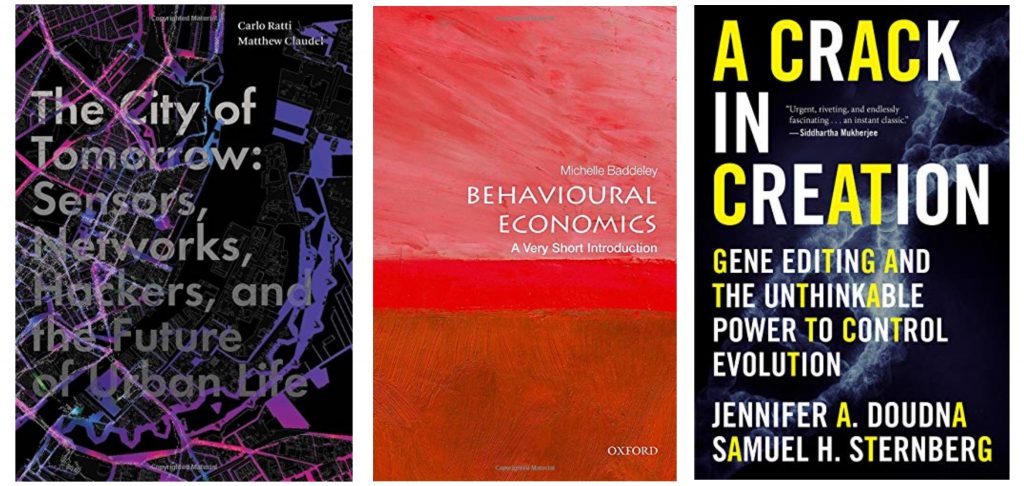To mark the launch of the new OpenMind book A Transcendent Decade: Towards a New Enlightenment?, we have asked its authors to recommend other works that help to go into greater depth regarding the issues addressed in this publication. Artificial Intelligence, robotics, anthropology, economics, geopolitics and climate change are some of the issues that will be key for humanity as it faces the beginning of a new decade: the 2020s.
This era will be marked by the fourth industrial revolution. The introduction into our daily lives of technologies such as Artificial Intelligence and the Internet of Things, the convergence of human nature and robotics and the development of new forms of economy will completely change the society in which we live.

ORIGINS. THE UNIVERSE, LIFE, HUMANS (2015)
Recommended by: María Martinón-Torres
To understand where we are, we have to know where we have come from. This interdisciplinary work is written by three authors: José María Bermúdez de Castro, Carlos Briones and Alberto Fernández, an astronomer, a biochemist and a paleoanthropologist. The authors explore the most essential matters in science: the origin of the universe, life and our own species.
NO SMALL MATTER: SCIENCE ON THE NANOSCALE (2009)
Recommended by: Sandip Tiwari
This work explores the possibilities of the world that we cannot see. Felice C. Frankel and George M. Whitesides analyse, through a narrative and visual journey, advances in microtechnology and nanostructures and their possible application to biology, computer science or data processing.
WTF? WHAT’S THE FUTURE AND WHY IT’S UP TO US (2018)
Recommended by: Joanna J. Bryson
In this influential work Tim O’Reilly analyses the impact that technology has and will have on the way in which we organise ourselves. Collaborative economy applications, the introduction of Artificial Intelligence or robotics will mean fundamental changes in the economy, business, education and people’s daily lives.

THE MASTER ALGORITHM (2015)
Recommended by: Ramón López de Mántaras
The automatic learning expert Pedro Domingos wrote this book as a manual to enter the world of AI and its applications with an accessible and informative language. The computer genius Bill Gates recommended it as the book that everyone should read to understand artificial intelligence and the Chinese President himself, Xi Jinping, used it to understand the realities and trends of this field.
MACHINES OF LOVING GRACE (2015)
Recommended by: Daniela Rus
Journalist specialised in economics and technology John Markoff analyses the implications that robotics and artificial intelligence will have on the economy and on work. The integration of robotics in human life entails a number of economic, ethical and philosophical dilemmas that we must debate for this integration to run smoothly.
WHY GLOBALIZATION WORKS (2005)
Recommended by: Ernesto Zedillo
Martin Wolf, the renowned economist and writer in the Financial Times, wields a defense of international trade as the engine of globalisation and analyses the role that institutions, governments and companies have in creating a model of international economic cooperation.
HOW DEMOCRACIES DIE (2018)
Recommended by: Vivien A. Schmidt
Populism and nationalism have shaken even the most stable democracies in the world in the last two years. Harvard professors Steven Levitsky and Daniel Ziblatt have investigated cases like the transformations of Chile and Turkey to explain the evolution of the democratic institutions.

THE CITY OF TOMORROW (2016)
Recommended by: Yang Xu and Carlo Ratti
The urban environment will also be the protagonist of change. The technology applied to urban planning will transform cities from mobility to efficient use of energy, waste management or connectivity. In this book we discuss the trends and initiatives that will make it possible.
BEHAVIOURAL ECONOMICS: A VERY SHORT INTRODUCTION (2017)
Recommended by: Michelle Baddeley
In 2015, winner of the Nobel Prize in Economics Daniel Kahneman wrote the best seller Thinking, Fast and Slow, which explained the way in which humans make decisions. Two years later, the economist Richard Thaler also won the Nobel Prize for his research on behavioural economics. This confirms that it is a field going through its finest moment: how does psychology and neurology affect economic decisions? With this book you can introduce yourself to the subject.
A CRACK IN CREATION: GENE EDITING AND THE UNTHINKABLE POWER TO CONTROL EVOLUTION (2017)
Recommended by: Samuel H. Sternberg
If there is a scientific breakthrough that promises great success in the future, it is CRISPR gene editing technology. The tool is set to end genetic diseases and even some types of cancer or AIDS, but it is not without controversy. The debate about its use and ethical limits is one of the topics dealt with in the book that analyses its impact and possible applications.
Comments on this publication